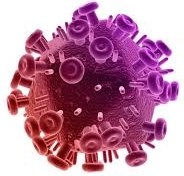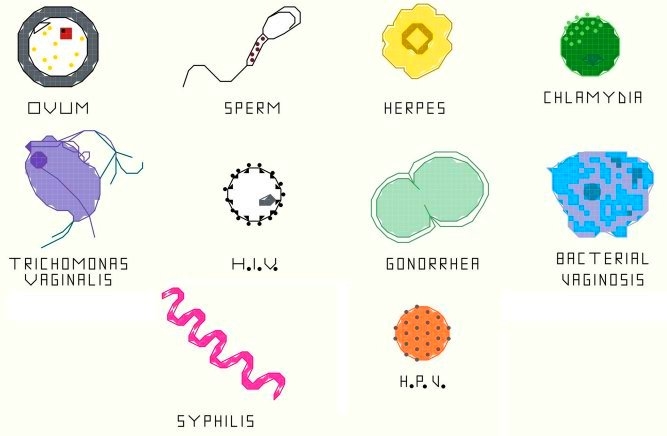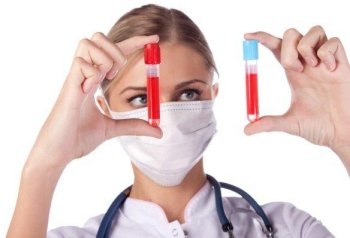In the wise words of the 90’s rap stars Salt n Pepa, “
let’s talk about sex baby”! However, let’s be even more blunt by talking about
Sexually Transmitted Diseases (STI’s). With an active sex life comes the responsibility of ensuring you are aware of the health of your sexual partners and of yourself. This is especially so when it comes to STI’s.

Sexually Transmitted Infections are infections transferred from one person to another through sexual intercourse - this includes vaginal, anal and oral sex. They are also referred to as
Sexually Transmitted Diseases (STD's). STI's are passed on through contact with bodily fluids such as vaginal fluids, semen, pre-ejaculation fluid and blood. Contact with infected skin, such as open sores on the mouth can also potentially transmit an STI.
Types of STI's
Bacterial
Bacterial STI’s come from bacteria being transferred from one person to another through sexual intercourse and are generally cured with antibiotics. These include
chlamydia,
gonorrhea and
syphilis. Symptoms are not always present but typically include genital discharge that is unusual in colour and odor, a burning, stinging sensation when peeing, pain in the pelvic area and lower abdominals (can be accompanied by fever), swollen testicles, and unusual vaginal bleeding unrelated to menstruation.
Viral
Viral STI's involve the transfer of viruses between sexually engaged individuals. These include genital herpes,
HIV (Human Immunodeficiency Virus),
hepatitis B, and
HPV (Human Papillomavirus). Unfortunately, there is no definite cure for
Herpes. In contrast, most Canadians adults diagnosed with Hepatitis B or HPV recover with time. While it is often difficult to distinguish between a viral and bacterial STI based on symptoms alone, viral STI’s are often marked by clusters of genital sores, swollen glands, a burning sensation in the genitals, nausea, dizziness and potentially fever and fatigue.

Parasitic
Parasitic STI’s involve the passing of parasites during sexual activity. These STI's are generally treated with anti-parasitic medication and/or antibiotics. Treatment usually involves a full-body cleanse and a thorough cleaning of your home.
Trichomoniases,
pubic lice (Crabs) and
scabies are parasitic STI’s. These can induce intense itchiness in the groin, the urge to urinate frequently, and a bubbly yellow-green vaginal discharge. The of presence of a parasitic STI can also be signified by small egg sacs in pubic hair and small bumpy rashes that appear in curling patterns between fingers, and across the glutes, thighs, belly, wrists and breasts.
Fungal
Yeast infections are not usually considered an STI. However, it is possible for a yeast infection to be transmitted through sexual activity. A
yeast infection causes vaginal irritation and itching that creates discomfort during intercourse and urination. This may be accompanied by a rash, swelling, and redness of the vaginal area. Vaginal discharge may appear either water or thick and white with a resemblance to cottage-cheese. Depending on the severity, it can be treated with oral medication, vaginal suppositories and/or a cream, as determined by a medical professional.
Click here to be directed to the
Calgary Sexual Health website for more information on STI’s
Get Tested
Still not sure if you have an STI? While the symptoms discussed above can hint at an STI, some people don’t have any symptoms at all. Even if you don’t have relentless itches or feel a burn when you pee, it is important to get tested. Testing may involve samples of urine and genital fluids, blood test, swabs, and/or visual assessment.
Where can I get Tested in Calgary?
There are many ways to receive STI testing in Calgary. Testing can be done at:

- Family physicians office
- Walk-in clinics
- Family planning centers
- Sexual health clinics
- STI clinic
Some of these locations may provide more thorough results than others. An STI-specific clinic will likely offer a more thorough and accurate assessment.
It is important to remember that in order to receive testing, you must provide your
Alberta Health Care card to show proof of coverage under the Alberta Health Care Insurance Plan (AHCIP). For temporary residents,
click here for more information about how you can get coverage under AHCIP.
Recommended Calgary Locations
These clinics offer free walk-in testing and treatment services to individuals under 25. However, you should call ahead about the HPV vaccine or an IUD. Birth control prescriptions and low cost birth control is also offered here. You can find an AHS clinic at the following locations:
 Location:
Location:
31 Sunpark Plaza SE, Calgary
403 943 9510
Drop-in Hours:
Mon: 1:00pm - 5:15pm
Tues: 4:00pm - 7:30pm
Fri: 12:00pm - 3:30pm
Location:
406 2675 36th St NE, Calgary
403 944 7666
Drop-in Hours:
Mon-Thurs: 1;00pm - 5:15pm
Fri-Sat: 12:00pm - 3:30pm
This clinic offers counselling and educational services,
STI diagnoses and
treatment, Hepatitis A and B Vaccines and private testing for HIV. As a bonus, they also deliver notifications to your previous sexual partners based on your diagnoses. Call-in support is also offered here if you are hesitant to make an appointment or need general guidance.
Location:
5th floor. 1213 4 St SW, Calgary
403 955 6700
811 - 24/7 call-in STI and Health support and advice
Hours:
Mon - Weds: 9am - 5pm
Thurs: 10:30am - 5pm
Fri-Sat: 8:30am - 4pm
Thursday Evenings:
Thursday's at the Sheldon Chumir's STI clinic offer HIV and STI testing specifically for men who are sexually active with other men from 5:15pm - 8:00pm.
Stigma and shame around STI's are big factors keeping people from being tested. Many people fear that, if diagnosed with an STI, you will lose friends and your reputation. Understandably, this is a
sensitive topic and may be challenging to open up to a health care professional about. Remember - you are not alone in feeling that way. Healthcare professionals are trained to discuss this information with you without judgment and with the utmost consideration for your health. Guidance and support will be provided to help you treat an STI and how to approach previous sexual partners about your diagnoses.

 Sexually Transmitted Infections are infections transferred from one person to another through sexual intercourse - this includes vaginal, anal and oral sex. They are also referred to as Sexually Transmitted Diseases (STD's). STI's are passed on through contact with bodily fluids such as vaginal fluids, semen, pre-ejaculation fluid and blood. Contact with infected skin, such as open sores on the mouth can also potentially transmit an STI.
Sexually Transmitted Infections are infections transferred from one person to another through sexual intercourse - this includes vaginal, anal and oral sex. They are also referred to as Sexually Transmitted Diseases (STD's). STI's are passed on through contact with bodily fluids such as vaginal fluids, semen, pre-ejaculation fluid and blood. Contact with infected skin, such as open sores on the mouth can also potentially transmit an STI.


